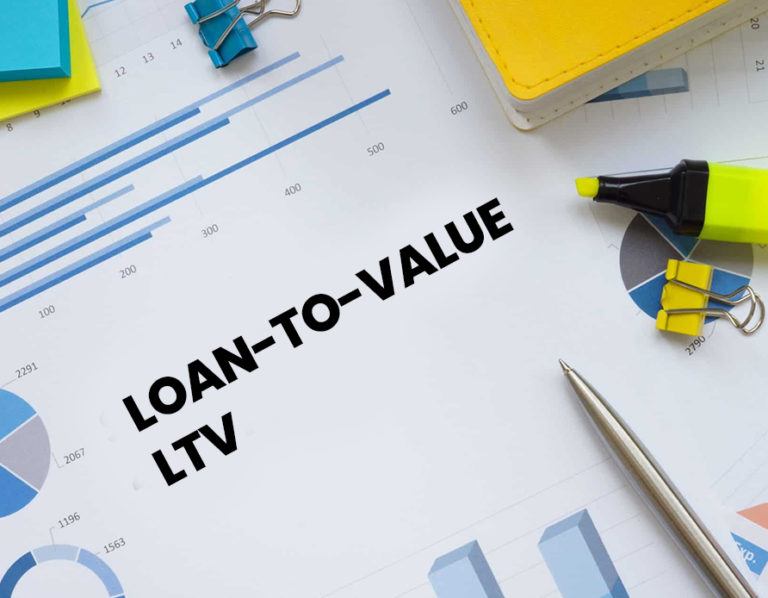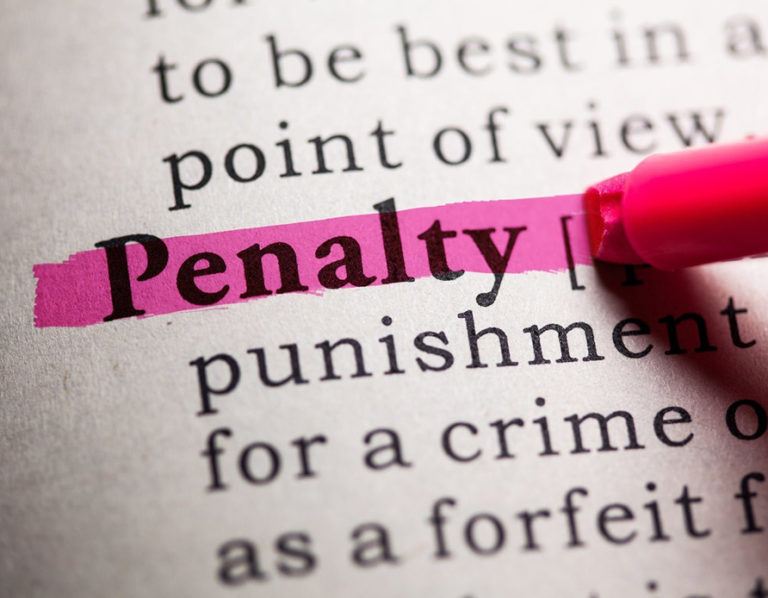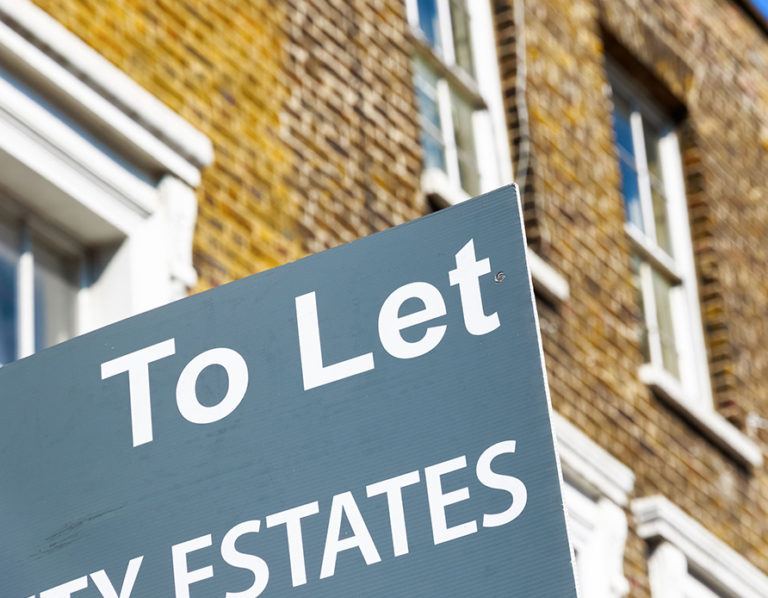Your Trusted Buy-To-Let Mortgage Advisor
Speak to an Expert Advisor
or
Why Choose Us
Why Choose Ascot Mortgages
What Our Clients Say About Us
Buying property for your own money in the UK is not available to everyone. At the same time, the purchase of property in the United Kingdom and it’s capital with the help of credit funds is one of the most attractive financial instruments among many countries. Mortgage lending is well developed in the country, especially the offer of buy-to-let-mortgages. Many families buy housing this way. Making a mortgage loan for the purchase of property allows you to significantly expand the price range of the purchased property.
What is a buy-to-let mortgage?
A buy-to-let mortgage in the UK refers to a financial arrangement wherein you purchase a property with the intent to rent it out, thereby generating rental income, or in anticipation of its value increasing. The primary source of mortgage loan repayment in this scenario will be the income derived from renting the property.
Even if you don’t reside in the UK, you can still invest in property through a buy-to-let mortgage. However, it’s worth noting that such mortgages might be perceived as riskier by lending institutions, given the lack of readily available information about your credit rating and financial stability within the UK.
Opting for a bank loan to purchase an investment property in the UK often provides a safer route. In this arrangement, the bank effectively becomes your partner, leveraging its extensive resources and knowledge to help prevent costly mistakes. Typically, the bank will conduct an independent evaluation of the property before finalising the loan. If this assessment reveals a price lower than the market value, it may present an opportunity to negotiate with the seller. Additionally, it’s worth being aware that there are certain types of properties for which banks might be hesitant to offer mortgage loans. Acquiring such a property without proper understanding could lead to difficulties later if you wish to sell or secure further borrowing against it.
Understanding the nuances of buy-to-let mortgages and working closely with a reputable financial advisers can help mitigate risks and guide you toward a successful investment in the UK property market.
Who is eligible for a buy-to-let mortgage?
In the United Kingdom, the terms for lending to non-residents typically align with those for residents and are currently rather appealing. A mortgage loan may cover up to 75% of the property’s value, with a tenure of up to 25 years, at an interest rate ranging from approximately 3.5% to 5.5% per annum.
British banks generally have two primary requirements for borrowers:
- The age of the borrower must be at least 21 years but no more than 65 years.
- The borrower’s annual income must be a minimum of £30,000, with mortgage payments not exceeding 35% of monthly income.
To apply for a loan, borrowers usually need to provide the following documents:
- A copy of the borrower’s passport.
- A statement detailing the movement of funds in a bank account over the last six months.
- Tax returns and income statements for the previous three years.
- Confirmation of the borrower’s permanent residence, which could include utility bills from the last three months.
- Documentation verifying regular income or availability of free funds and assets amounting to at least £1,000,000.
- Additional documents explaining the borrower’s sources of income may also be required.
All these documents must be in English and notarised.
How much deposit do I need for a buy-to-let mortgage?
The deposit size for a buy-to-let mortgage in the UK typically ranges from 20% to 40% of the property’s value. Such a deposit might come from various sources, including personal savings, proceeds from property sales, insurance payments, inheritance, or gifts from close relatives.
For individuals who have recently moved to the UK, it’s common for deposit funds to be transferred from abroad. It’s essential to note that this isn’t merely a matter of financial logistics. Both the bank and solicitors handling your purchase will require documentation to verify the legality of the money’s origin. This scrutiny is not simply a matter of curiosity but rather a compliance measure in line with UK laws concerning anti-money laundering and the prevention of financing terrorism.
Transferring money to a UK bank account from your home country, rather than physically carrying cash across the border, is crucial in this process. The bank must be able to trace all links in the chain of receipt for the funds you wish to use as a deposit. This is a critical aspect of ensuring that the financial transaction adheres to UK legal standards, protecting both the buyer and the broader financial system.
Mortgage Repayment Calculator
How do buy-to-let mortgages work?
Buy-to-let mortgages in the UK enable both domestic and foreign citizens to invest in rental property, with foreign applicants treated almost on par with UK citizens. The interest rate on these loans can be either fixed or variable, with the latter typically based on the Bank of England’s refinancing rate.
Here’s how the process usually unfolds:
Place Your Deposit
To kick things off, you’ll need to make a deposit. The required amount for a buy-to-let mortgage tends to be higher than for standard residential mortgages, generally being around 25% of the property’s value. However, this percentage may vary depending on individual circumstances and the lender’s terms.
Interest-Only Payments
One option for your monthly repayments is to opt for an interest-only mortgage. Under this arrangement, you pay only the interest accrued each month, with the principal amount remaining untouched. The full principal sum is then paid off in a lump sum at the end of the loan’s term.
Repay the Full Amount
Alternatively, you could choose a repayment mortgage, where monthly payments consist of both interest and a portion of the principal. This approach gradually reduces the outstanding balance over the loan’s term until the full amount has been repaid.
Obtaining the best buy-to-let mortgage deal involves careful consideration of your financial position and investment goals, as well as adherence to the regulations governing property investment in the UK. Consulting with a British financial advisor or mortgage broker with expertise in buy-to-let mortgages can further assist you in navigating this complex financial landscape.
How can I get the best deals on a buy-to-let mortgage?
Obtaining a lucrative deal on a buy-to-let mortgage in the UK requires careful consideration of several key factors, including the initial annual interest rate, monthly payments, commissions, and the standard variable rate. Here are the steps you may follow to achieve the most favourable mortgage option:
Compare a Wide Range of Deals
Assess mortgages across the entire market to pinpoint the best deal suitable to your specific situation. Look at the interest rates, fees, and likelihood of your application being accepted to find the most economical option.
Monitor Your Credit Score
Lenders in the UK rely heavily on your credit score to gauge your reliability as a borrower. Ensuring a robust credit score is vital. You can enhance it by registering on the electoral roll, punctually paying bills, adhering to borrowing limits, and closing redundant credit accounts.
Determine the Appropriate Mortgage Type
Choosing the correct mortgage type is pivotal as it will influence your future options and financial flexibility. For instance, a buy-to-let mortgage rate tracker may be suitable if you can afford potential increases in monthly payments. If a consistent budget is a priority, a fixed-rate deal might be your best bet, ensuring stable repayments for a set period.
Be Aware of Associated Fees
Even minor variations in percentage fees can accumulate into significant costs over time. It’s crucial to consider not only the lender’s fees but also any agent’s fees if you choose to employ one, and insurance for the new property.
Utilise Mortgage Calculators
Mortgage calculators can be a handy tool in this process. By entering your individual data and requirements, these calculators can provide a tailored insight into potential mortgage deals.
Consider Professional Advice
Engaging an Ascot Mortgages with expertise in buy-to-let mortgages could further assist in navigating the complex landscape of UK property investment.
Navigating the Buy to Let Landscape
What Our Expert Says...
Buy to Let has long been a cornerstone of the UK’s property investment domain. It offers a dual reward of rental income and potential capital appreciation. However, it’s not without its complexities. Successful Buy to Let investments hinge on location choice, understanding market trends, and managing ongoing landlord responsibilities. Additionally, one must be astute about tax implications and regulatory changes. My advice? Keep yourself educated, seek professional advice, and always maintain a long-term perspective.
What to consider before choosing a buy-to-let mortgage?
When purchasing property with the intention of letting it out, various factors must be meticulously considered, such as the type of ownership (freehold or leasehold), and the property’s location. In the UK, these elements significantly influence not only mortgage eligibility but also potential rental income and loan terms. Given the complexity, professional guidance is often indispensable. Here’s a series of pointers to aid you in selecting a buy-to-let mortgage:
Clear Credit History
Before approaching UK banks for a mortgage, ensure that your credit history is unblemished and transparent. Lenders scrutinise this to gauge your financial reliability.
Thorough Documentation
Assemble all necessary documents, including comprehensive references regarding your income sources. In the UK, the mantra “the more, the better” holds true, as lenders seek assurance of your ability to repay.
Strategic Property Selection
Choose the property with care, avoiding illiquid or unmarketable assets that may prove difficult to sell. This can hamper loan repayment. UK banks are stringent about the properties they finance, since they may have to sell them to recover the loan if payments are missed.
Ownership Considerations
Consider the form of ownership—freehold (owning the property and the land it’s on) or leasehold (owning the property for a set period but not the land). This factor can influence mortgage eligibility in the UK.
Area of Residence
Location can impact rental rates and consequently, the loan terms. Seek professional guidance to identify suitable areas for investment within the UK.
Avoid DIY Approach
The UK’s mortgage lending process is complex and specific to the nation. Attempting to navigate it independently to save a nominal amount could lead to loan denial, thwarting your investment aspirations.
Consult a Property Specialist
Engage with a UK-based property or mortgage specialist like Ascot Mortgages who understands the intricacies of buy-to-let mortgages. Their expertise can guide you through the legal and practical aspects, maximising the chances of securing a mortgage that aligns with your needs.
How to compare buy-to-let mortgages
In the UK, securing a buy-to-let mortgage is a common practice, but it requires careful consideration. Whether you’re an experienced landlord or new to the market, it’s essential to find the right mortgage product for your investment property. Here’s how to go about comparing options:
Don’t Wait for Your Current Deal to Expire
You don’t have to wait until your existing mortgage agreement is near its end to seek a new deal. In the UK, it’s standard practice to begin searching for your next mortgage deal three to six months prior to your current agreement expiring.
Consider Your Needs
Are you looking to remortgage for a home renovation that has gone over budget? Perhaps unexpected expenses have arisen, requiring additional borrowing. Be clear about your reasons for remortgaging, as this will guide your decision-making.
Beware of Early Repayment Penalties
While chasing lower interest rates might seem appealing, it’s essential to weigh this against potential early repayment charges. In the UK, these penalties can be substantial and may negate any savings on monthly mortgage payments. Consult your existing mortgage agreement to understand any charges that may apply.
Consult a Mortgage Broker
Engage with a mortgage broker like Ascot Mortgages who specializes in buy-to-let mortgages in the UK. We can help you compare products across different lenders, taking into account your specific needs and the overall costs, including fees and interest rates.
Consider the Type of Mortgage
You’ll need to choose between fixed and variable rates. Fixed rates provide stability in your monthly payments, while variable rates can fluctuate with changes in the Bank of England’s base rate.
Look at the Whole Picture
When comparing mortgages, consider not just the interest rate but also the fees, terms, flexibility, and lender’s reputation. A mortgage product with a slightly higher interest rate but lower fees and more flexible terms might be more suitable for your situation.
Utilize Comparison Tools
Our online tool allow you to compare buy-to-let mortgages across various UK lenders. These can be a valuable resource in getting an overview of the market and narrowing down your options.
Apply for a Buy To Let
Get things moving, apply for a buy to let.
Free unbiased mortgage advice is just a phone call away.
FAQ
The amount you can borrow on a Buy to Let mortgage depends on several factors, including the expected rental income of the property, your personal income, your creditworthiness loan to value and interest rate. Generally, lenders will require the rental income to cover at least 125% of the mortgage payment for lower rate tax payers/limited companies and 145% for higher rate taxpayers. Typically, you can borrow 75% to 80% of the property’s value, but this can vary depending on the lender and your individual circumstances.
The deposit you’ll need for a buy-to-let mortgage will typically be higher than for a standard residential mortgage. Lenders will usually require a deposit of 25% of the property’s value, although some may accept a smaller deposit. Keep in mind that the larger the deposit you can put down, the better the interest rate you may be able to secure.
In most cases, if you are a private landlord and renting a property that will be your tenants’ home, then you’re likely to need an Assured Shorthold Tenancy (AST). When applying for a Buy to Let mortgage, the mortgage lender will insist that you have an AST and may ask to see a copy. There’s more information about tenancy agreements on the GOV.UK website.
When applying for a buy-to-let mortgage, it’s important to choose a rental property that is likely to be a safe investment, and mortgage lenders will also consider factors such as the location and condition of the property. However, lenders may also have general restrictions on certain types of property, such as new build flats, ex-local authority properties, high-rise flats, flats above commercial premises, and holiday homes. These restrictions may include requiring a larger deposit or limiting the number of floors in the building. It’s important to note that these are just examples, and our mortgage advisor can help identify which lenders are more likely to approve a mortgage for a specific type of property.
A buy-to-let mortgage is specifically designed for those who want to purchase a property with the intention of renting it out to tenants, whereas a residential mortgage is designed for those who want to buy a property to live in themselves. The main difference is that buy-to-let mortgages typically come with higher interest rates and require a larger deposit, as lenders consider them to be a higher risk investment. Additionally, buy-to-let mortgages often have different affordability criteria and lenders may consider the potential rental income when determining the amount that can be borrowed. Buy to Let mortgages are mainly non-regulated but there are some exceptions where they are deemed to be regulated in certain situations.
The interest rates for a buy-to-let mortgage can vary depending on a number of factors, including the deposit size, the type of property being purchased, the rental income potential, and the borrower’s credit score. Generally speaking, buy-to-let mortgages tend to have higher interest rates than residential mortgages, and lenders may also charge arrangement fees and other associated costs. Our advisors are always available to assist you in finding the most suitable deal for your unique situation.
Yes, it is possible to get a buy-to-let mortgage as a first-time buyer, but it can be more challenging. As a first-time buyer lenders may view you as a higher risk and will also base their lending decision on both rental income and your own personal affordability. However, if you have a good credit score, a stable income, and a solid business plan for your rental property, you may be able to secure a buy-to-let mortgage. It’s important to shop around and compare different lenders to find the best deal for your individual circumstances which is why contacting a mortgage broker for the right advice is a good solution.
At the end of your interest-only buy-to-let mortgage, you will be required to repay the full amount borrowed including any fees that were added to the mortgage on completion. This can be done in several ways, such as selling the property, using savings or investments, or refinancing the mortgage. If you choose to refinance, you will need to apply for a new mortgage, and the lender will assess your ability to repay the loan based on your income and credit score. It’s important to plan ahead and have a clear repayment strategy in place to avoid any financial difficulties at the end of the mortgage term.
There is no limit to the number of buy-to-let mortgages you can have. However, the number of mortgages you can obtain is subject to certain conditions and criteria. However, some lenders have their own restrictions on how many mortgaged buy to let properties you can have with them or restrict the maximum loan to value. It’s worth noting that having multiple buy-to-let mortgages can be a complex and risky venture, so it’s important to seek professional advice before making any investment decisions. As with any financial investment, it’s crucial to carefully consider the risks and rewards before committing your money.
There are several reasons why a buy-to-let mortgage application in the UK might be declined.
Here are a few common reasons:
Insufficient income: Lenders will typically require you to have a minimum level of personal income in order to qualify for a mortgage plus the rental income would need to pass their stress rates. If you don’t meet their criteria, your application may be declined.
Poor credit history: Your credit score and history play a crucial role in the lender’s decision-making process. If you have a history of missed payments, defaults or bankruptcy, this could impact your chances of being approved for a mortgage.
Property doesn’t meet lender’s criteria: Each lender has their own criteria for the type of property they are willing to lend on. If the property you are looking to purchase doesn’t meet their criteria, your application may be declined for example properties adjacent or above commercial premises, properties of non-standard construction, properties that need significant refurbishment etc.
Existing debt: If you have significant debt, this could impact your chances of being approved for a mortgage, as it affects your debt-to-income ratio.
Too many existing mortgages: Some lenders may have a limit on the number of properties they will lend on to a single borrower. If you already have too many mortgages, your application may be declined.
It’s important to work with a mortgage advisor who can help you understand the lender’s criteria and guide you through the application process. They can also help you identify potential issues with your application and advise you on how to improve your chances of being approved.
No, you cannot live in a house with a buy-to-let mortgage. The purpose of a buy-to-let mortgage is to purchase a property for the sole purpose of renting it out to tenants. If you want to live in the property yourself, you will need to apply for a residential mortgage instead.
Yes, it is possible to change your existing mortgage to a buy-to-let mortgage if you want to rent out your property. However, you will need to seek permission from your lender to make this change (known as consent to let). Not all lenders approve such requests and you may have to consider a remortgage on to a buy to let basis instead. It’s important to speak to a mortgage advisor to discuss your options and find the best solution for your individual circumstances.
To get the best buy-to-let remortgage deal, it’s important to shop around and compare different lenders to find the best interest rates and fees. You should also consider factors such as the length of the mortgage term and any early repayment charges. In addition, it’s important to have a solid business plan for your rental property and a good credit score, as lenders will assess your ability to repay the loan based on these factors. It’s important to speak to a mortgage advisor to discuss your options and find the best solution for your individual circumstances.
Generally, buy-to-let mortgages tend to have higher interest rates and fees compared to standard residential mortgages. This is because buy-to-let mortgages are considered a riskier investment for lenders, as the income generated from the property is not guaranteed and may be affected by factors such as rental demand and fluctuations in the property market. However, the actual cost of a mortgage will depend on a range of factors, including the specific lender, the loan amount, and the borrower’s financial circumstances.
Residential mortgages are designed for owner-occupiers, who will be living in the property as their main residence. If you want to rent out a property, you will need to apply for a buy-to-let mortgage, which is specifically designed for this purpose. The main difference between the two types of mortgage is the way in which the loan is assessed and underwritten by the lender and also how it is regulated. A buy-to-let mortgage lender will typically base their decision on the rental income potential of the property, whereas a residential mortgage lender will consider factors such as the borrower’s income and credit commitments. It’s important to note that if you obtain a residential mortgage with the intention of renting out the property, you could be in breach of your mortgage terms and potentially face legal action.
Meet Our Team












More On Buy To Let
Video
Looking for a buy-to-let mortgage? Ascot Mortgages is here to help! Our specialists are experienced in buy-to-let financing and have access to a wide range of mortgage options. Contact Ascot Mortgages today to discuss your buy-to-let mortgage requirements and secure the ideal financing solution.
Contact Us
Legal
Ascot Mortgages authorised and regulated by the Financial Conduct Authority and can be found on the FCA register (www.fca.org.uk) under reference 776062. The FCA do not regulate some forms of mortgages. The guidance and advice contained in this website is subject to UK regulatory regime and is therefore restricted to consumers based in the UK. There may be a fee for mortgage advice. The precise amount will depend upon your circumstances but we estimate it will be £599 per mortgage account. Ascot Mortgages Ltd give you the option to pay a non-refundable fee of £1299 payable with the application. If this option is taken, Ascot Mortgages Ltd will refund any procuration fee received by the lender.
Ascot Mortgages Limited is registered in England and Wales and have their registered office at 8 Webster Court, Westbrook, Warrington, WA5 8WD. The company’s registration number is 06764971.
We are a credit broker, not a lender. We work with the whole of the lending market. We may receive commissions that will vary depending on the lender, product, or other permissible factors. The nature any commissions model will be confirmed to you before you proceed.
YOUR PROPERTY MAY BE REPOSSESSED IF YOU DO NOT KEEP UP REPAYMENTS ON A MORTGAGE OR ANY DEBT SECURED ON IT
©2024 AscotMortgages.co.uk – All Rights Reserved









